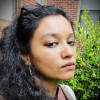How this city kills its people

I've been living away from my family for the past 10 years, and just like many migrants in the Bangladeshi diaspora, one of the largest in the world, I have borne the brunt of living away in search of a sustainable livelihood. When I arrived in Dhaka on July 7 of this year, I was still unaware of the fact that my little brother, Roycellus Arya Shafat Rahman, had passed away a week before my landing. He died on the Friday after Eid-ul-Azha at the tender age of 26. There are no words I can use to eulogise my brother, because the sufferings he endured, and the love and lessons he has left behind for us, are immeasurable.
During his lifetime, Shafat carried the many burdens of our dysfunctional families and societies, two vital elements that have the power to perpetuate systemic injustices. Loneliness, anxiety, depression – these have all intricately seeped into the very core of how we live in this city. And so Shafat wanted to leave Dhaka and go to a place where he could breathe in fresh air, eat unadulterated fruits, enjoy clean lakesides, where the sunlight would pour through his window, where he would receive proper medical care, a city where he could live with dignity. I have to call all these "amenities," because to access these basic elements for a healthy life, Dhaka's middle and lower middle classes have to pay a hefty price.
Dhaka, in every sense of the phrase, is a concrete jungle. It's a city for the rich, built on the backs of the working class. It's not a place where a family of average means can raise their children and guarantee a healthy, unscarred life for them. It's so unliveable that my brother stayed in isolation for the last years of his life. There are many youths with endless potential like Shafat – whose acumen, grit, and life energy are stifled by corporate greed, unplanned urbanisation, a flailing education system, and the superficial societal fabric. But from one senseless tragedy we move on to the next one. We cannot complain or explicate when we have decimated the opportunities to fix the broken system the elites benefit from. The post-mortem report of my brother includes all the societal culprits responsible for paving the path to his demise. Even on his last day, he was frantically looking for a job, an opportunity to utilise his brilliant mind. Many youths survive in Dhaka just like this, with the patience to achieve their dreams, just like my brother.
When our system fails to nurture and accommodate us, we look for a way out. The love for this city is related to how much social capital we have to navigate the hurdles. And so, Dhaka's lower-middle-class families have no escape. This is a scathing remark for the place where my life began, the city whose foul air filled my growing lungs, where my brother suffered. Many of our parents grew up with much less in the countryside. But they had clean air, lakes to swim and catch fish in, and open green fields that stretched through horizons.
Shafat and I grew up in a flat in Dhanmondi, where we could barely see the sun, where evenings were full of the odour of insecticides. Every road in the area was dotted with restaurants and shopping malls, serving those with the means to pay up. But how would we burn those extra calories? Where could we walk? Today, we struggle to find an open space to breathe in fresh air, while children now flock to apartment-turned-schools. We have increasingly become a society dependent on cars, because of the dilapidated and often overlooked public transit system. Along with that, we have an abundance of corruption booty leading to skyrocketing purchasing power of the top echelon. We have taken all this for granted for so long that they have become Dhaka's character traits.

Research after research have shown that if you are born rich, you will probably end your life as a richer person. Not only that, if you are wealthy, you have a higher life expectancy and better access to institutions that help in preserving the status quo. The reason why lower-middle-class families move to Dhaka is because mobility and development are selective, exclusionary and city-centric. Meanwhile, youngsters from these families get pulled into a wave of toxic number-based meritocracy as we continue to venerate educational institutions that are merely churning out machines. We pay with our lives for the ambitions we harbour.
Why don't we point our fingers at these institutions? We cannot talk about mental health, addictive inclinations, and weakening familial ties without pointing out how our societal, educational and economic systems are leading to this crisis. While I hold a grave sense of personal responsibility for my brother's passing, something I will be reckoning with for the rest of my life, Shafat's death is revealing of a larger story of struggle and injustice that cannot be ignored.
While my brother's dreams had been shattered, he was the best of dreamers. Shafat was extraordinarily brilliant and futuristic. He loved to break and build things from scratch and knew the ins and outs of what he studied. My brother was analytical, thoughtful, kind, giving, patient and organised to perfection. The world will never come to know of the inventions that Shafat would have made, or the discoveries he would stumble upon, or the grand journeys he would embark on. So now, I'm doing what I can, speaking about the systems of inequality that cut his journey short. Unfortunately, this is not going to be the last time someone loses their brother to this city.
Sarzah Yeasmin is a Boston-based Bangladeshi writer. She works at Harvard Kennedy School and is currently pursuing a micro-master's in data and economics from Massachusetts Institute of Technology (MIT).
Views expressed in this article are the author's own.
Follow The Daily Star Opinion on Facebook for the latest opinions, commentaries and analyses by experts and professionals. To contribute your article or letter to The Daily Star Opinion, see our guidelines for submission.

 For all latest news, follow The Daily Star's Google News channel.
For all latest news, follow The Daily Star's Google News channel. 










Comments